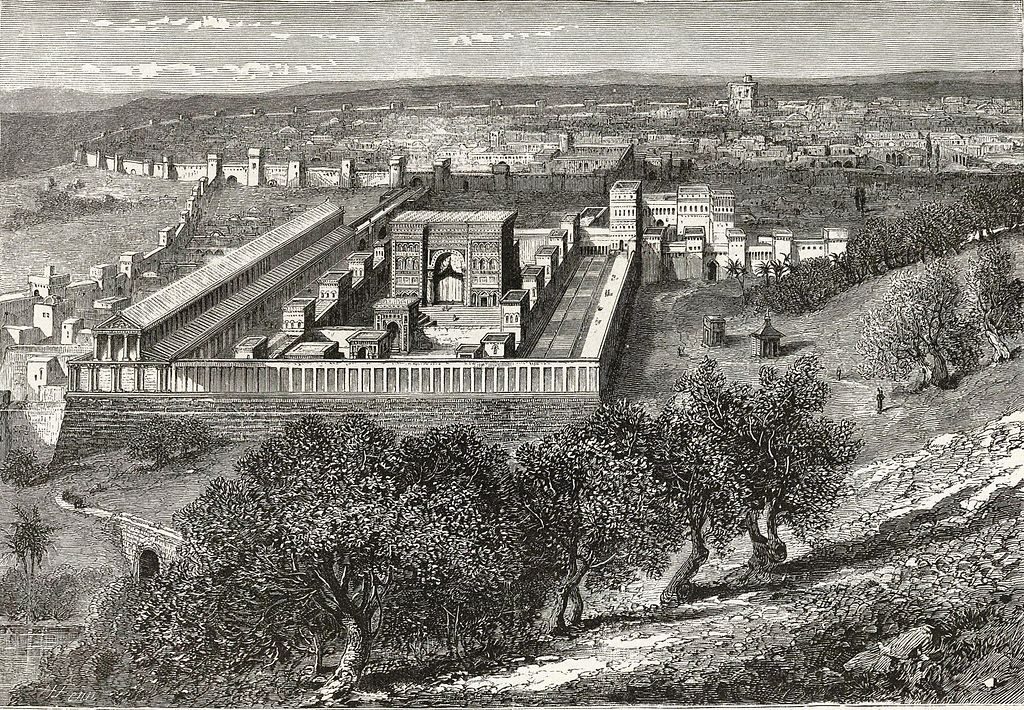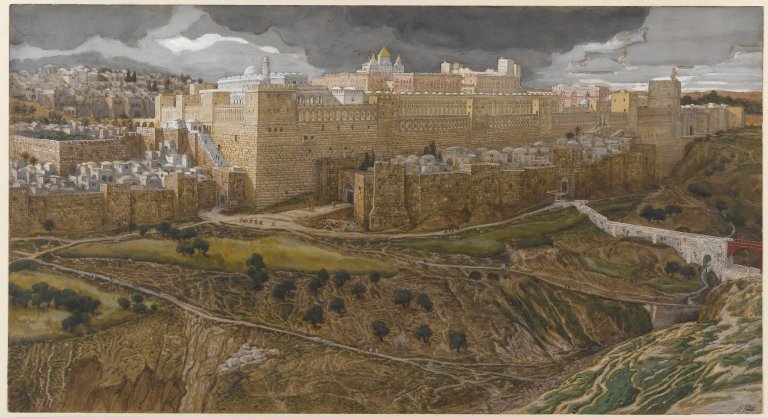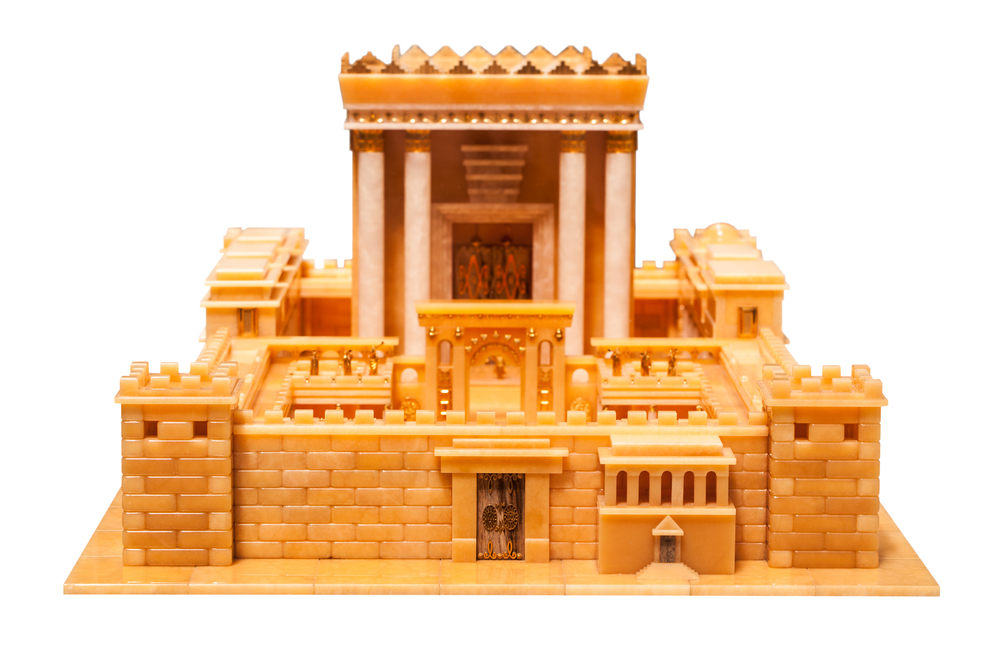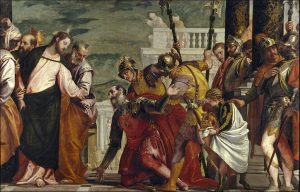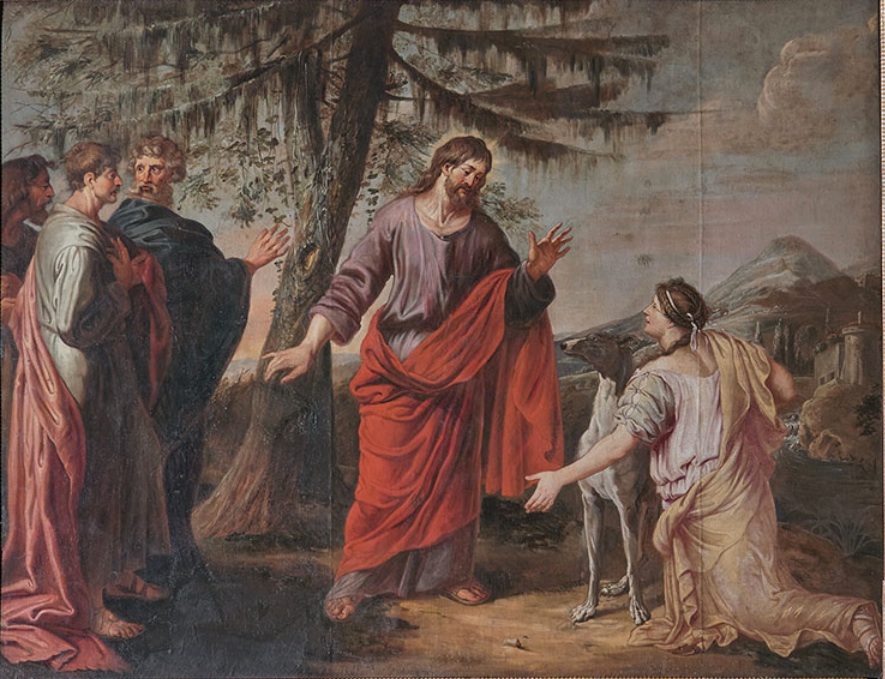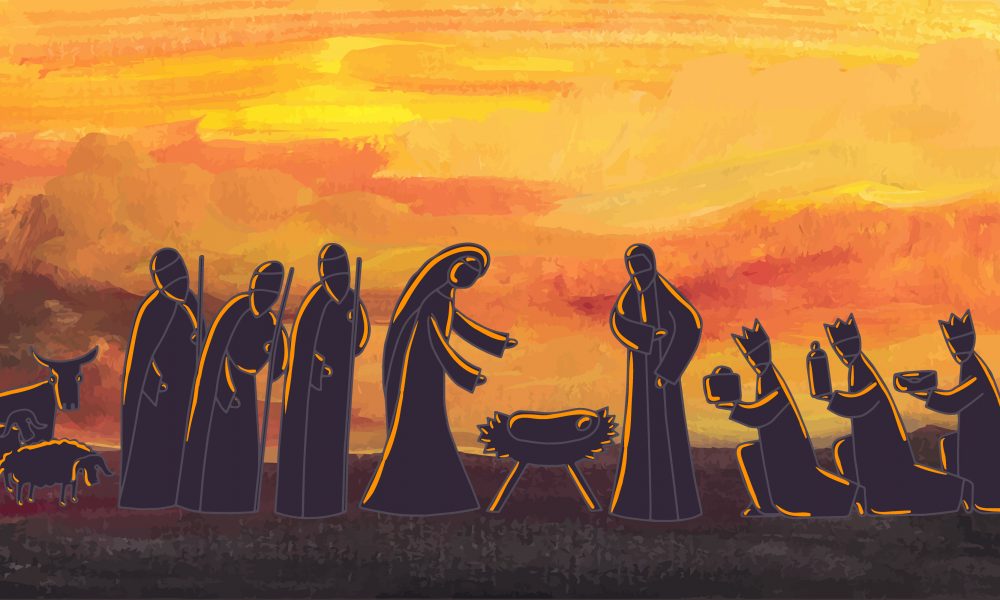
10 BC to 10 AD, Psalm 47: Jesus, for the nations.
This site was first built in French (see www.147thgeneration.net). The English translation was mainly done using « google translation ». We have tried to correct the result of this translation to avoid interpretation errors. However, it is likely that there are unsatisfactory translations, do not hesitate to communicate them to us for correction.
(for that click on this paragraph)
Summary
This generation is from the years 100 BC to 10 AD
According to our count, this generation is the 47th generation associated with Psalm 47. It is in this Psalm 47 that we therefore find an illustration of the facts of this generation.
This generation is marked by the tumultuous end of Herod’s reign and the partial and unglamorous succession of Archelaus his son.
Internally, palace intrigues, mainly led by Antipater, one of Herod’s sons, against the two sons of Herod and Mariamne, Alexander and Aristobulus, will finally bear fruit: Herod has them executed. This will only benefit Antipater for a short time, because although designated as official heir, he will be executed by Herod a few days before his death. The death of Herod’s most promising sons leaves the land in a prejudicial vacuum, at the death of Herod.
Archelaus succeeds Herod. Unpopular, he was deposed by Augustus who deported him to Vienna in Gaul. Judea then passes under the immediate control of the Romans, thus becoming a Roman province. This change will lead to a rapid deterioration of the political and economic climate.
Despite the political disorder, the renovation of the Temple of Jerusalem was completed in this generation. For that he does not destroy the old one. He consolidated the edifice by rebuilding the foundations and walls while giving the whole the luster of the first Temple of Solomon. The work lasts about ten years and the inauguration gives rise to a great ceremony.
This new splendor of the Temple of Jerusalem, which had probably not been reached since the time of Solomon, is a booster for religious life, particularly in the Pharisee movement generally favored by Herod.
The Temple is likely to be a prime catalyst for Jewish thought. At this generation, two masters (Shammaï and Hillel) confront each other (spiritually). Hillel will be heard most often, his principles will be the foundation of Judaism today.
This generation is that of the birth of Jesus. Jesus will reshape the pagan world, whether through Christianity that flows logically or through Islam that will also rely, more complex, on the message of Jesus. The Temple built by Herod, which allows the development of modern Judaism through new generations of sages, also takes a central place in the life of Jesus, and consequently in the birth of Christianity.
The Temple is not content to be part of the Gospel landscape. It is also the place that Jesus frequents from a young age (therefore during the generation that interests us) and where he builds his convictions with the wise Jews of the time in the debates.
It is therefore in spite of a generally unfavorable political context that this generation sees the emergence of new philosophies rooted in the Jewish Bible. These will definitively change the destiny of the world by bringing to it the universal light of monotheism with Jerusalem and its Temple as a common source.
Talk
August
This generation is marked by the tumultuous end of Herod’s reign and the partial and unglamorous succession of Archelaus his son.
This generation begins with the disgrace of Herod to Augustus who was nevertheless a strong ally.
Herod had had to pursue thieves who had fled to Arabia after provoking many disturbances on his land. He made an expedition to punish the thieves and those who supported them by sparing the population.
The Arabs then reported these events by turning the facts into disfavor of Herod, which provoked the wrath of Augustus, emperor of Rome. This disgrace will last more than a year until Auguste realizes the good right of Herod and its real restraint, thanks to the plea of Nicolas de Damas, the official biographer of King Herod whose only quotations made by Flavius Josephus have reached us.
Succession of Herod
Augustus was even ready, after this affair, to give Arabia to Herod, but changed his mind because of the tensions evoked by King Herod with his sons.
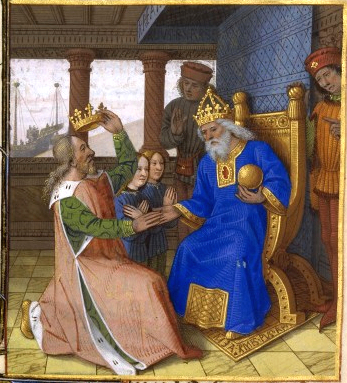
Internally, palace intrigues, mainly led by Antipater, one of Herod’s sons, against the two sons of Herod and Mariamne, Alexander and Aristobulus, will finally bear fruit.
Herod will indeed execute Alexander and Aristobulus.
This will only benefit Antipater for a short time, because although designated as official heir, he will be executed by Herod a few days before his death.
The death of Herod’s most promising sons leaves the land in a prejudicial vacuum, at the death of Herod.
Archelaus
Archelaus is the beneficiary of Herod’s last testament. Testament in particular disputed by Antipas another son of Herod designated him, on a previous testament.
Even before being crowned in Rome, Archelaus mate in blood a revolt in Jerusalem making more than three thousand dead. While Archelaus defends his position with Augustus, many troubles shake Judea.
The various uprisings often led by improvised leaders are stifled by the Romans. Finally, the Romans consider the little experience of Archelaus call him king but on a small part of the kingdom of Herod. The remaining part was shared between Philip and Antipas, other sons of Herod.
After ten years of power, Archelaus, unpopular, was dismissed by Augustus who deported him to Vienna in Gaul.
Judea[1] then passes under the immediate control of the Romans, thus becoming a Roman province. This change will lead to a rapid deterioration of the political and economic climate.
The renovation of the Temple
Herod, after eighteen years of reign (the project begins around 20/19 BC), had undertaken the reconstruction of the Temple. Despite the political disorder, the renovation of the Temple of Jerusalem was completed in this generation. For that he does not destroy the old one. He consolidated the edifice by rebuilding the foundations and walls while giving the whole the luster of the first Temple of Solomon. For this he addressed the people of Jerusalem:
- but[2] as to that undertaking which I (it’s Herod speaking) have a mind to set about at present, and which will be a work of the greatest piety and excellence that can possibly be undertaken by us, I will now declare it to you.
- Our fathers, indeed, when they were returned from Babylon, built this temple to God Almighty, yet does it want sixty cubits of its largeness in altitude; for so much did that first temple which Solomon built exceed this temple; nor let any one condemn our fathers for their negligence or want of piety herein, for it was not their fault that the temple was no higher; for t hey were Cyrus, and Darius the son of Hystaspes, who determined the measures for its rebuilding; and it hath been by reason of the subjection of those fathers of ours to them and to their posterity, and after them to the Macedonians, that they had not the opportunity to follow the original model of this pious edifice, nor could raise it to its ancient altitude; but since I am now, by God’s will, your governor, and I have had peace a long time, and have gained great riches and large revenues, and, what is the principal filing of all, I am at amity with and well regarded by the Romans, who, if I may so say, are the rulers of the whole world, I will do my endeavor to correct that imperfection, which hath arisen from the necessity of our affairs, and the slavery we have been under formerly, and to make a thankful return, after the most pious manner, to God, for what blessings I have received from him, by giving me this kingdom, and that by rendering his temple as complete as I am able. »
The work lasts about ten years and the inauguration gives rise to a great ceremony (around 9 BC):
- The[3] temple itself was within this (Flavius Josephus had previously given a complete description of the external parts of the Temple); and before that temple was the altar, upon which we offer our sacrifices and burnt-offerings to God. Into none of these three did king Herod enter, (24) for he was forbidden, because he was not a priest. However, he took care of the cloisters and the outer enclosures, and these he built in eight years.
- But the temple itself was built by the priests in a year and six months; upon which all the people were full of joy; and presently they returned thanks, in the first place, to God; and in the next place, for the alacrity the king had showed. They feasted and celebrated this rebuilding of the temple.
Religious renewal
This new splendor of the Temple of Jerusalem, which had probably not been reached since the time of Solomon, is a booster for religious life, particularly in the Pharisee movement generally favored by Herod.
It is likely that the strongly negative image that the Gospels gave of this movement is more inspired by the opposition between the early Christians and the rabbis, heirs of the Pharisees, at the time of the late writing of the Gospels rather than the time of Jesus.
According to the Talmudic tradition, Herod undertook to rebuild the Temple to redeem himself from his abuses against the rabbis (Pharisees) of the time on the advice of Baba Ben Bouta, a Pharisee whom he had spared:
- Then[4], rejoined Herod: « I am Herod, and I did not know that the Rabbis were so careful. Had I been aware of this I would not have slain them; but now I crave your advice. Whereupon Baba said: « You have extinguished the light of the world. Go and occupy yourself in kindling the light of the world; you have extinguished the light of the world, the Rabbis, as it is written (Pr. 6, 23) For the commandments is a lamp, and the Torah is light; go and occupy yourself in kindling the light of the world, to build the Temple, concerning which it is written (Is. 2, 2) And unto it (The Temple) shall shine all the nations. »
The Talmud explains this request:
- Herod had indeed extinguished the light of the world by killing the rabbis; and Rabbi Baba asked him to take care of reviving her by building the Temple, since it is written « All nations will shine therein. »
The Temple is likely to be a prime catalyst for Jewish thought. If many Rabbis had succeeded each other since the time of Ezra laying the foundation of the Talmud, the generation that interests us will be the one that sees two masters (Shammaï and Hillel) confront each other (spiritually). Hillel will be heard most often, his principles will be the foundation of Judaism today.
Jesus
This generation is that of the birth of Jesus. If Hillel has largely influenced the Jewish world, Jesus will reshape the pagan world, whether through Christianity that flows logically or through Islam that will also rely, more complex, on the message of Jesus.
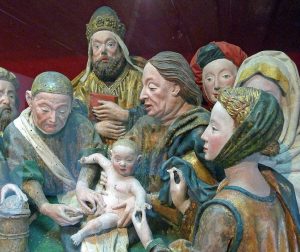
The life of Jesus is relatively unknown, the dates of his birth and death are not known exactly.
In referring to the Gospels, there are many elements of the birth of Jesus at the end of the reign of King Herod.
In the Gospel of Luke, the birth of John the Baptist is recounted during the reign of Herod:
- In[5] the time of Herod king of Judea there was a priest named Zechariah, who belonged to the priestly division of Abijah; his wife Elizabeth was also a descendant of Aaron.
Likewise, in the Gospel of Matthew, the reign of Herod is mentioned for the birth of Jesus:
- After[6] Jesus was born in Bethlehem in Judea, during the time of King Herod, Magi from the east came to Jerusalem
- and asked, “Where is the one who has been born king of the Jews? We saw his star when it rose and have come to worship him.”
In this gospel, Herod, worried, tries in vain to know more, thus pushing Joseph to flee:
- When[7] they had gone, an angel of the Lord appeared to Joseph in a dream. “Get up,” he said, “take the child and his mother and escape to Egypt. Stay there until I tell you, for Herod is going to search for the child to kill him.”
In order not to take any risks, Herod lashes out at all the young children in Bethlehem:
- When[8] Herod realized that he had been outwitted by the Magi, he was furious, and he gave orders to kill all the boys in Bethlehem and its vicinity who were two years old and under, in accordance with the time he had learned from the Magi.
It is unlikely that the « massacre of the innocent » evoked by the Gospels is a historical reality, Flavius Josephus would have probably recounted. This episode probably tends to give Jesus an image of savior comparable to that of Moses who escaped in his time the massacre of male newborn by Pharaoh.
The Temple built by Herod that allows the rise of modern Judaism through new generations of sages also takes center stage in the life of Jesus and consequently in the birth of Christianity.
Thus, the imposing grandeur of the Temple is noted in the Gospel of Matthew:
- Jesus[9] left the temple and was walking away when his disciples came up to him to call his attention to its buildings (Jesus, in the remainder of the text announces his imminent destruction, let us recall, however, that the Gospel of Matthew was written after the destruction of the Temple)..
Likewise in the Gospel of Mark:
- As[10] Jesus was leaving the temple, one of his disciples said to him, “Look, Teacher! What massive stones! What magnificent buildings! (As with the Gospels of Matthew, Jesus then announces the coming end of the Temple, but the Gospels of Mark were also written after the destruction of the Temple).”
When Jesus enters Jerusalem, it is to enter the Temple:
- Jesus[11] entered Jerusalem and went into the temple courts.
Likewise Zechariah, the father of John the Baptist, had been one of the priests in the service of the Temple:
- Once[12] when Zechariah’s division was on duty and he was serving as priest before God,
- he was chosen by lot, according to the custom of the priesthood, to go into the temple of the Lord and burn incense.
- And when the time for the burning of incense came, all the assembled worshipers were praying outside.
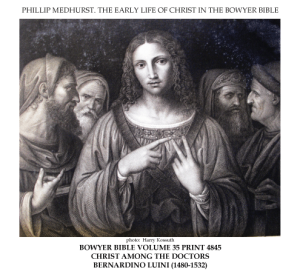
The Temple is not content to be part of the Gospel landscape. It is also the place that Jesus frequents from a young age (therefore during the generation that interests us) and where he builds his convictions with the wise Jews of the time in the debates.
So when he is arrested, Jesus recalls his diligence in the Temple:
- Every[13] day I sat in the temple courts teaching, and you did not arrest me.
Assiduity he had from a young age:
- When[14] they (- the parents of Jesus on their return from Jerusalem after the Passover celebration – ) did not find him, they went back to Jerusalem to look for him.
- After three days they found him in the temple courts, sitting among the teachers, listening to them and asking them questions.
The Talmud (in one of the rare passages that came to us despite censorship) evokes Jesus as a character who would otherwise have been part of the wise people of the Jewish people and thus confirms Jesus’ attachment to the teaching of the masters mentioned in the Gospel of Luke:
- The Sages[15] taught: Always have the left hand drive sinners away and the right draw them near, so that the sinner will not totally despair of atonement. This is unlike Elisha, who pushed away Gehazi with his two hands and caused him to lose his share in the World-to-Come, and unlike Yehoshua ben Peraḥya, who pushed away Jesus the Nazarene with his two hands.
Hillel
Among these masters probably figured prominently, directly or indirectly Hillel. Many modern commentators point to the parallelism of his teaching to that of Jesus. Among them, Ernest Renan (through the analysis of Mireille Hadas-Lebel):
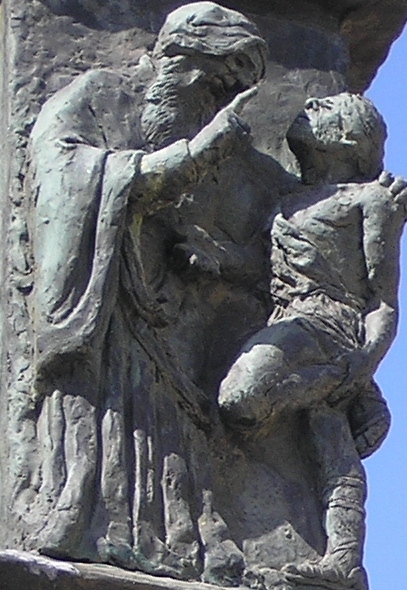
- In[16] his « life of Jesus », Renan therefore hypothesizes that Jesus knew them (Hillel’s maxims contained in the Pirqé Avot) « not as a result of scholarly studies but as often repeated proverbs ». He immediately specifies that « Jesus adopted almost all this oral teaching, but penetrating it with a higher education ». Because « he wanted perfection ». And that if “Jesus of Sirach (presumed author of the“ Syracide ”included in the New Testament) and Hillel had uttered aphorisms almost as high as those of Jesus, Hillel however will never pass for the true founder of Christianity”. Renan even writes that « by his humbly endured poverty, by the gentleness of his character, by his opposition to hypocrites and priests, Hillel was the master of Jesus. (a position that Renan tries to soften in the rest of his presentation) « .
Herod who reconstructed the Temple and thus modeled the theater of events that will affect the destiny of humanity has also designated the actors. So he calls Simon to the great priesthood to marry his daughter:
- He[17] (Herod) also fell in love again, and married another wife, not suffering his reason to hinder him from living as he pleased. The occasion of this his marriage was as follows: There was one Simon, a citizen of Jerusalem, the son of one Boethus, a citizen of Alexandria, and a priest of great note there; this man had a daughter, who was esteemed the most beautiful woman of that time; and when the people of Jerusalem began to speak much in her commendation, it happened that Herod was much affected with what was said of her; and when he saw the damsel, he was smitten with her beauty, yet did he entirely reject the thoughts of using his authority to abuse her, as believing, what was the truth, that by so doing he should be stigmatized for violence and tyranny; so he thought it best to take the damsel to wife. And while Simon was of a dignity too inferior to be allied to him, but still too considerable to be despised, he governed his inclinations after the most prudent manner, by augmenting the dignity of the family, and making them more honorable; so he immediately deprived Jesus, the son of Phabet, of the high priesthood, and conferred that dignity on Simon, and so joined in affinity with him [by marrying his daughter].
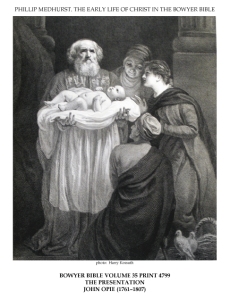
It is likely the same Simon who will bless Jesus for the symbolic redemption at Cohen, a typically Jewish ceremony:
- “Sovereign[18], Lord, as you have promised, you may now dismiss your servant in peace.
- For my eyes have seen your salvation,
- which you have prepared in the sight of all nations:
- a light for revelation to the Gentiles, and the glory of your people Israel.”
Openness to the pagan world
This mission evoked by Simeon is illustrated by the meeting of a Roman centurion, Jesus then announces the opening of the pagan world to monotheism:
- I say[19] to you that many will come from the east (– East: diffusion by Islam – ) and the west (– West: diffusion by Christianity –), and will take their places at the feast with Abraham (– common patriarch to the three monotheistic religions –), Isaac (– Common Patriarch to Christianity by Esau and Judaism by Jacob –) and Jacob (– Patriarch of Judaism, the nation of priests –) in the kingdom of heaven.
- But the subjects of the kingdom (– The Jews –) will be thrown outside, into the darkness (– the two remaining guards of the long night where the Jews will be in the midst of the nations and will suffer all the curses set forth in Deuteronomy while bringing light to the world – )
This mission of spreading Monotheism in the world from Judaism is illustrated by the episode of the Canaanite who seeks help from Jesus:
- He[20] answered (– at the solicitation of the Canaanite –), “I was sent only to the lost sheep of Israel.
- ”The woman came and knelt before him. “Lord, help me!” she said.
- He replied, “It is not right to take the children’s bread and toss it to the dogs.”
- “Yes it is, Lord,” she said. “Even the dogs eat the crumbs that fall from their master’s table.”
- Then Jesus said to her, “Woman, you have great faith! Your request is granted.” And her daughter was healed at that moment.
We will find again this orientation of Jesus to seek in priority the salvation of the pagans in the Gospel of Luke:
- Jesus[21] answered them, “It is not the healthy who need a doctor, but the sick.I have not come to call the righteous (– The Jews –), but sinners (– the pagans –) to repentance.”
Universal influence
It is therefore in spite of a generally unfavorable political context that this generation sees the emergence of new philosophies rooted in the Jewish Bible. These will definitively change the destiny of the world by bringing to it the universal light of monotheism with Jerusalem and its Temple as a common source.
It is the birth of this universal diffusion that evokes the beginning of the psalm of this generation:

- For the conductor; of the sons of Korah, a song.
- All peoples, clap hands; shout to God with a voice of praise.
- For the Lord is Most High; yea, feared; a great King over all the earth.
- He shall plague peoples in our stead and kingdoms under our feet.
- He shall choose our inheritance for us, the pride of Jacob, which He loves forever.
- God shall be exalted with the trumpet blast; the Lord, with the sound of the shofar.
- Sing to God, sing; sing to our King, sing.
- For God is the King of all the earth; sing a song composed with wisdom.
- God has reigned over nations; God has sat upon His holy throne.
Mary’s praise when she visits Elizabeth, pregnant with the future John the Baptist, echoes this psalm:
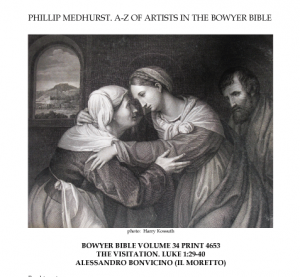
- And May[22] said: “My soul glorifies the Lord
- and my spirit rejoices in God my Savior,
- for he has been mindful of the humble state of his servant. From now on all generations will call me blessed,
- for the Mighty One has done great things for me— holy is his name.
- His mercy extends to those who fear him, from generation to generation.
- He has performed mighty deeds with his arm; he has scattered those who are proud in their inmost thoughts.
- He has brought down rulers from their thrones but has lifted up the humble.
- He has filled the hungry with good things but has sent the rich away empty.
- He has helped his servant Israel, remembering to be merciful
- to Abraham and his descendants forever, just as he promised our ancestors.”
The expansion of the divine message to all of Abraham’s descendants, which includes Esau and Ishmael, classically associated with Christianity and Islam, largely confirmed by Jesus’ messages to the pagan world already mentioned, illustrates the continuation of the psalm:

- The volunteers of the peoples have assembled, the people of the God of Abraham, …
This sharing of the divine message between the Jews who hold the original word and the pagan world will not be painless for the Jewish people, to whom the pagan world will never cease to reproach their election.
It is therefore under the power of the nations that the Jews will see the long night unfold before the long-awaited dawn begins to point to the horizon.
This resurrection, already well illustrated in the writings of the Jewish Bible (« the Old Testament »), is also recalled in the New Testament, especially in the Gospel of Luke:
- They (– The Jews –)[23] will fall by the sword and will be taken as prisoners to all the nations. Jerusalem will be trampled on by the Gentiles until the times of the Gentiles are fulfilled.
This confirmation of the final resurrection of the Jewish people in a conscious world of the divine message illustrates the end of the psalm:

- … for God has the shields of the earth; He is exceedingly exalted.

[1] Peter Schäfer / History of the Jews in Antiquity . (French reference : «Peter Schäfer/Histoire des Juifs dans l’antiquité » (translated from German to french by Pascale Schulte / Editions du Cerf))
[2] Flavius Josephus / Jewish Antiquities / Book Fifteenth / Chapter 11 (1)
[3] Flavius Josephus / Jewish Antiquities / Book Fifteenth / Chapter 11 (5)
[4] Aggadoth of the Babylonian Talmud / Baba Bathra Treatise / Chapter 1
[5] Luke ( New International Version (NIV) ), Chapter 1, verse 5
[6] Matthew (New International Version (NIV) ), Chapter 2, verses 1 and 2
[7] Matthew (New International Version (NIV) ), Chapter 2, verse 13
[8] Matthew (New International Version (NIV) ), Chapter 2, verse 16
[9] Matthew (New International Version (NIV) ), Chapter 24, verse 1
[10] Mark ( New International Version (NIV) ), Chapter 13, verse 1
[11] Mark ( New International Version (NIV) ), Chapter 11, verse 11
[12] Luke ( New International Version (NIV) ), Chapter 1, verses 8 to 10
[13] Matthew (New International Version (NIV) ), Chapter 26, verse 55
[14] Luke ( New International Version (NIV) ), Chapter 2, verses 45 and 46
[15] Babylonian Talmud / Sanhedrin 107b (The William Davidson Talmud, see https://www.sefaria.org/Sanhedrin.107b.8?lang=bi )
[16] « Hillel, a sage in Jesus’ time » by Mireille Hadas-Lebel / Chapter 4 (Hillel and Jesus). (French reference : Hillel, un sage au temps de Jésus de Mireille Hadas-Lebel/Chapitre 4 (Hillel et Jésus)
[17] Flavius Josephus / Jewish Antiquities / Book Fifteenth / Chapter 9 (3)
[18] Luke ( New International Version (NIV) ), Chapter 2, verses 29 to 32
[19] Matthew (New International Version (NIV) ), Chapter 8, verses 11 and 12
[20] Matthew (New International Version (NIV) ), Chapter 15, verses 24 to 28
[21] Luke ( New International Version (NIV) ), Chapter 5, verses 31 and 32
[22] Luke ( New International Version (NIV) ), Chapter 1, verses 46 to 55
[23] Luke ( New International Version (NIV) ), Chapter 21, verse 24

